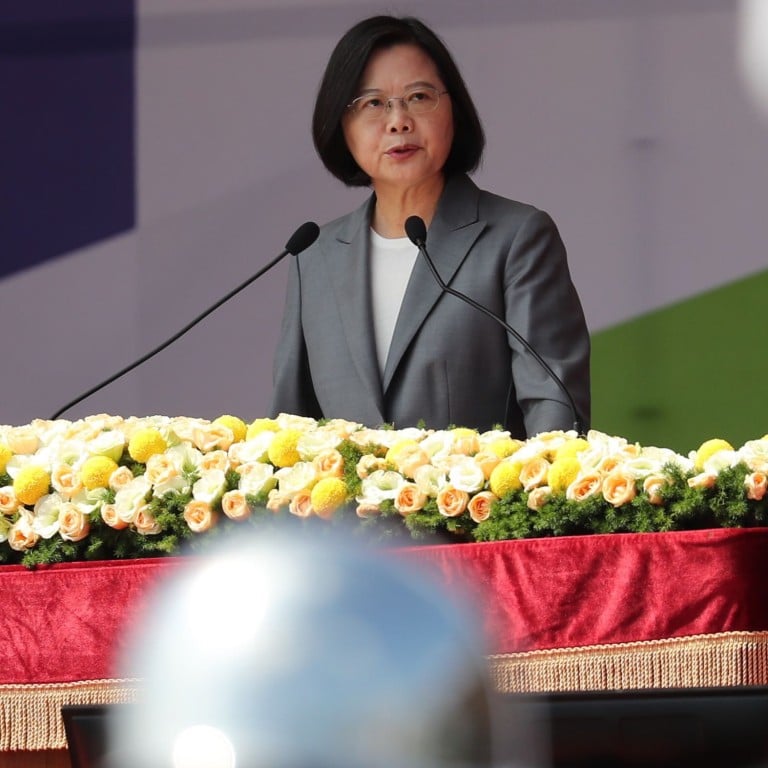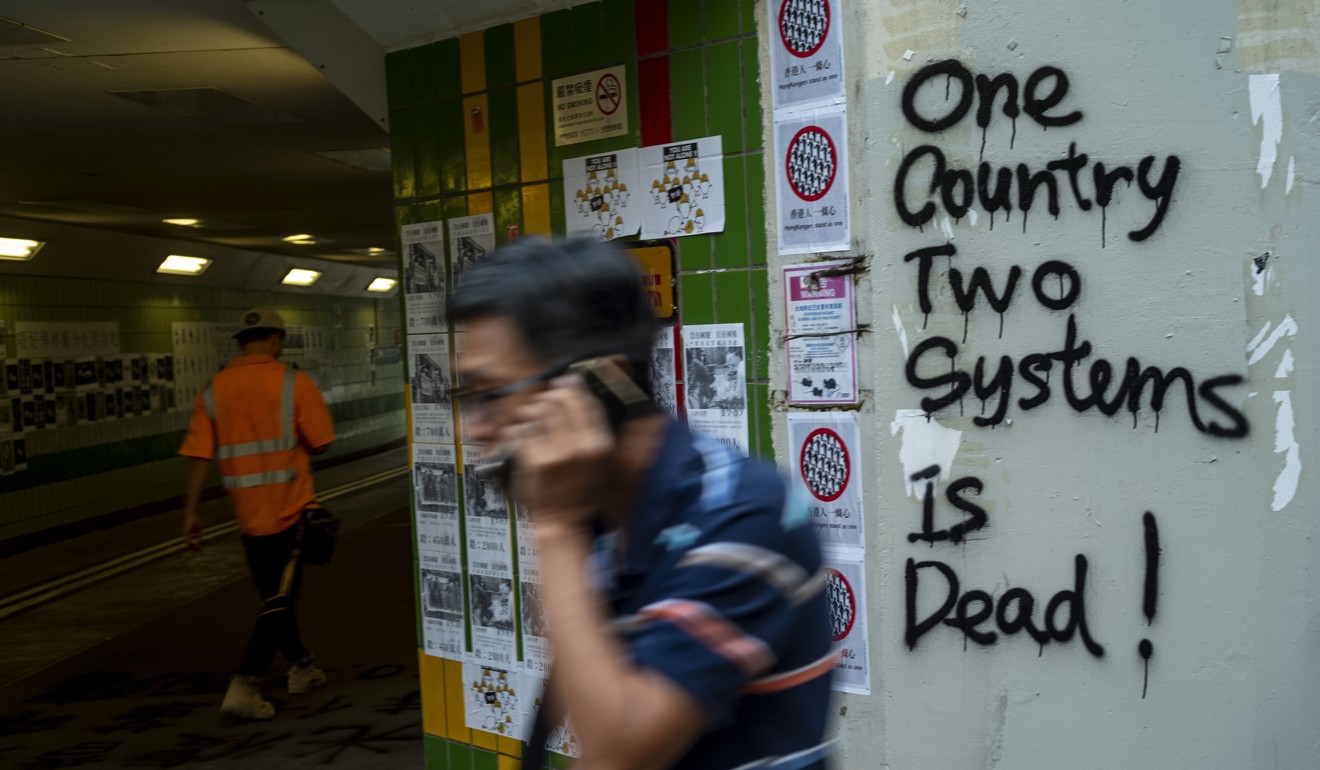
Taiwan’s President Tsai Ing-wen urges rejection of ‘one country, two systems’ model she says fails Hong Kong
- In address marking 108th anniversary of founding of the Republic of China, Tsai says protection of Taiwanese sovereignty is not provocation, but her responsibility
- Tsai’s speech is rejection of President Xi Jinping’s National Day call for talks on unification
Taiwan’s President Tsai Ing-wen has denounced Beijing for its efforts to force the island into unification talks under the “one country, two systems” model which, she said, is failing Hong Kong.
In her address on Thursday marking the 108th anniversary of the founding of the Republic of China – Taiwan’s official name– Tsai called on its citizens to firmly reject that model, which she said would threaten the self-ruled island’s survival.
“But if we were to accept one country, two systems, there would no longer be room for the Republic of China’s existence. As president, standing up to protect national sovereignty is not a provocation – it is my fundamental responsibility,” Tsai said.
Hong Kong is in the 18th week of protests triggered by a now-withdrawn extradition bill which was, campaigners claimed, orchestrated by Beijing so that dissidents could be sent to the mainland for trial.
Taiwan’s KMT opposition tries to reassure US over defence policies
Since October 1, China’s National Day, protesters have escalated vandalism and violence, wrecking and burning shops, bank branches and subway stations.
Protesters said that by appointing its supporters to rule the city and refusing to allow general elections, Beijing has betrayed the promise made at the time of the British handover in 1997 for 50 years of autonomy in Hong Kong.
Tsai’s comments on Hong Kong were at odds with President Xi Jinping’s calls for Taiwan to hold reunification talks.
During National Day celebrations on October 1, Xi repeated his call for continued efforts to realise the country’s complete reunification.

“On our journey forward, we must uphold the principles of ‘peaceful reunification’ and one country, two systems, maintain lasting prosperity and stability in Hong Kong and Macau, promote the peaceful development of cross-strait relations, unite all Chinese sons and daughters, and continue to strive for the motherland’s complete reunification,” Xi said.
Tsai said Taiwan has faced a host of serious challenges over the past 70 years, including persistent pressure and military intimidation from the mainland.
Taiwan or the Republic of China? Island grapples with question of identity
Beijing considers Taiwan a wayward province that must return to the mainland fold – by force if necessary.
“Time and again, the people of Taiwan have faced diplomatic offensives and military coercion without ever backing down. Together, we have defended the land on which we stand and our national sovereignty,” she said.
Tsai called on the public to unite under the banner of freedom and democracy to defend the sovereignty of Taiwan, create a prosperous society and actively engage with the world and overcome challenges so “the Republic of China (Taiwan) can hold its head high on the international stage with bravery and confidence”.
“What Tsai said represented the view of the majority of the public in Taiwan who do not want to live in a system already proven a big failure in Hong Kong,” said Chao Chun-shan, a cross-strait affairs expert and an honorary professor at Tamkang University in Taipei.
But Su Chi, former secretary-general of Taiwan’s National Security Council, said Tsai had deliberately linked the one country, two systems model to the 1992 consensus.
The latter was a tacit understanding made by representatives from the two sides that they would agree there is only one China, but each had its own interpretation of what that means.
“Xi didn’t link the model and the consensus, and it was Tsai who deliberately did that for her own political gain,” Su said.
In January Xi proposed that the two sides should send representatives to hold cross-strait unification talks under the consensus – and the one country, two systems model could be one option when discussing what form the unification would take.

He said this was a serious distortion of Xi’s proposal and would create a serious problem comparable to a “volcanic eruption” if Tsai wins a second term in January’s poll.
Tsai has refused to accept the “one China” principle since she was first elected in 2016, resulting in ever-souring cross-strait relations.
On Thursday, her main opposition challenger, Han Kuo-yu, from the mainland-friendly Kuomintang, criticised her for using fears about the “doom of the country” to canvass support for her rejection of Beijing.
“Her support for the protests in Hong Kong is just a vote-swaying gimmick,” Han said, adding if he won the race, he would do all he could to repair cross-strait ties and bring a bright future for the island.

